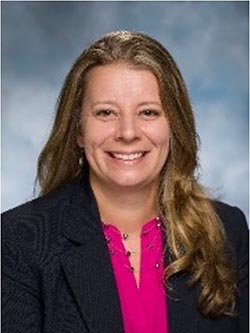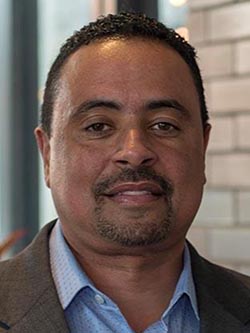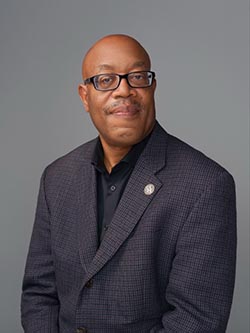Panel 2: Praxis, Interventions, and Future Directions for Dyadic Healthcare Communication

Dr. Joy Cox is a body justice advocate using her skill set in research and leadership to foster social change through the promotion of body diversity, equity and inclusion. Dr. Cox received her PhD in Communication from Rutgers University in 2018, and recently was a past Graham Ladensohn Presence 5 Fellow through Stanford University. Much of Dr. Cox’s work over the past 10 years has focused on racism and weight stigma in healthcare, bringing attention to matters of intersectionality, accessibility, and “health.” She is also the author of Fat Girls in Black Bodies: Creating Communities of Our Own released in 2020, and has been featured on several podcasts and media productions, not limited to CNN’s Chasing Life with Sanjay Gupta, the Tavis Smiley Show, and the New York Times.

Denalee M. O’Malley, Ph.D., M.S.W., is an Assistant Professor in the Rutgers Robert Wood Johnson Medical School (RWJMS), Department of Family Medicine and Community Health’s Research Division and an Associate Member of the Rutgers Cancer Institute of New Jersey. She is an oncology social worker with 10 years of clinical and 15 years of research administration and program development experience. Dr. O’Malley’s research uses implementation science methodologies to optimize cancer care delivery and promote health equity in priority populations. She is the principal investigator of an NCI-funded study, “Optimizing Colorectal Cancer Screening among Patients with Diabetes in Safety-net Primary Care Settings: Targeting Implementation Approaches” (K99 CA256043;R00CA256043). She is currently a scholar in the 2021 cohort of the Washington University in Saint Louis–Institute for Implementation Science Scholars Program. Dr. O’Malley has designed and delivered individual and small group interventions (e.g., eHealth, small group facilitation, and psychotherapy) across several primary care and cancer survivorship focused research projects. She has collaborated on several NIH-funded (e.g., NCI, NIDA, NHLBI) implementation science projects to assess and intervene on the clinic-level organizations capacity to translate evidence-based practices into real-world care delivery settings.

Dr. Charles Senteio joined the SC&I faculty in September 2016 after teaching in the Department of Media and Information at Michigan State University’s College of Communication Arts and Sciences. He is a Licensed Clinical Social Worker (LCSW), Certified Health Education Specialist (CHES), and Certified Community Health Worker Instructor (CHW-I). Charles Senteio uses mixed methods to investigate how healthcare practitioners and patients can better use information to improve chronic disease outcomes for at-risk patients – while reducing cost of care – through financially sustainable care delivery models. He develops and enhances innovative, scalable approaches to care delivery, with a particular emphasis on community-based participatory (CBPR) research strategies. His dissertation describes the psychosocial factors that practitioners consider in providing outpatient diabetes care. Among his findings are the perceived facilitators and barriers to using Electronic Health Record (EHR) tools to document and use pertinent psychosocial information.

Ralph Stowe is the CEO and founder of Jazz for Prostate Cancer Awareness (Jazz4PCA), a 501(C)3 organization which raises awareness about prostate cancer and raises support for free prostate cancer screenings using jazz as the platform for men’s wellness presentations. Mr. Stowe is a gospel and jazz pianist himself. Jazz4PCA is featured as a community outreach campaign by the Rutgers Cancer Institute of New Jersey.
